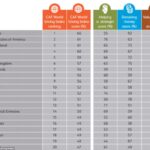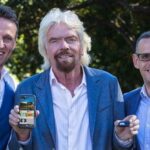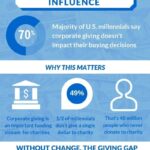by James C. Moore
Every American generation changes something. They have an impact. Or get branded with a name because of a characteristic. Or a common achievement.
The post World War II Beat Generation of writers were credited with making Americans think about their values. They rejected materialism. And were interested in ideas. Even spirituality. They were followed by an even stronger anti-establishment trend in the 60s and 70s as young people protested the Vietnam War and a culture that said they had to conform.
The latest generation getting branded by analysts and demographers is referred to as Millennials. They have also been called the “Echo Generation” because of their arrival after Baby Boomers. And were tabbed with “Generation Y,” until the arrival of a better name. Sociologists and demographers put their birthdates between 1982 and 2004.
But who are they? And what do they represent? Even more critically: what do they want?
Millennials have gotten their share of grief. They are frequently criticized for lacking motivation because the majority of their numbers come from Boomer parents who have given Millennials a cushy, soft place to fall. They get accused of being slackers and not wanting to get out of the nest to achieve. Every privilege America has to offer seems to have been bestowed upon Millennials. And their critics don’t think they are doing enough with these advantages.
The critics, as usual, are mostly wrong. Millennials are taking up the technology boom and helping it to mature into smart vertical businesses and industries. They tend to be much more entrepreneurial in spirit than their parents and the demographic cohorts that preceded them. And they rely less on mainstream sources of information to make their decisions and form opinions.
But here is the most important characteristic of the Millennial generation: They are charitable and like to give. And give differently.
In 2014, according to Blackbaud’s Next Generation of American Giving report, the average annual Millennial gift or donation was $481, which is not an inconsiderable sum given the fact they are just beginning to make their way professionally and are loaded down with college debt. The Millennial Impact Report by the Achieve Research Group says that 84 percent of Millennials made a donation that year and 70 percent gave at least an hour of their time to a cause or charity.
There are a few other key distinctions about Millennials and their charitable instincts. The Boomer generation has always followed a social norm that suggested the individual was supposed to first financially secure themselves and their families before assessing what they might be able to offer in terms of charity. Millennials have soundly rejected this notion. Their behavior indicates they think giving is an element of a lifestyle that they intend to sustain every day.
{{cta(‘a67601ab-319d-467e-8100-a2ba0d006d8f’)}}
They are also disinclined to send money off to large, almost non-descript charities and causes where they cannot measure the impact of their financial or volunteer participation. Derrick Feldman, who founded Achieve, indicates that, “The organizations that successfully pique Millennials’ desire to do good are causes that continually provide feedback and show them the difference that’s being made along the way.”
Technology also inspires Millennials’ charitable instinct. They like apps, email blasts, text messaging, and crowd funding as methodologies that raise money to help. Blackbaud’s report said 62 percent of Millennials used an app in 2014 to make a donation. They also prefer technological simplicity and one-touch apps, and according to Feldman of Achieve, that led to an average of $25 dollar gifts via an app.
The parents of Millennials are often happy with writing a check and wishing good luck to a cause or charity but their children seek engagement. Millennials tend to view money, time, and skills as assets to be shared with worthwhile charitable endeavors. Achieve’s research provides data to prove they are much more likely to give money after they have been involved with a charity, and if it is an endeavor that resonates with their values, they will activate their social networks to multiply impact.
Different isn’t always better. Sometimes it’s just different. But the combination of the accumulated resources of Baby Boomers and the tendency to lifestyle giving by their children, the Millennials, promises to transform charitable giving in America with a depth of resources to accomplish almost immeasurable good.



































































































































